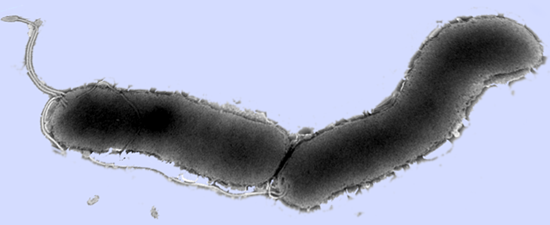Microbiology and Environmental Toxicology
COURSE REQUIREMENTS FOR THE TRAINING TRACK IN MICROBIOLOGY AND ENVIRONMENTAL TOXICOLOGY
METX first-year students participate in three seven-week laboratory rotations, while undertaking rigorous coursework that emphasizes critical evaluation of scientific models and experimental results. The program provides the flexibility to craft an individual curriculum that specifically suits the needs of the student's research interests. At the end of the three rotations, students select a thesis lab for an independent research project that ultimately leads to their dissertation. First year students craft a literature review to form a sound basis for their thesis research. In the second year, students take oral qualifying exams. Advanced graduate students work under the direct supervision of one of fifteen affiliated faculty members in a highly interactive, collaborative research environment. All students speak every year in the Dept. of Microbiology and Environmental Toxicology seminar series, participate in a variety of seminars, advanced special topics courses, and research group meetings designed to provide continuing learning opportunities. Please refer to the METX Graduate Student Handbook for detailed information on graduate studies in the department of Microbiology and Environmental Toxicology.
General Requirements
- Coursework: Students take a minimum of 5 courses (courses listed below).
- Research Rotations: Students complete 3 rotations in different laboratories during the 1st year
- Rotation Seminar: Students present a rotation talk at the end of each rotation in the 1st year
- Teaching: Graduate students must TA at least one quarter
- Oral Qualifying Exam: The qualifying exam is taken at the end of their 2nd year
- Research Seminar: Students formally present their research in the 3rd year
- Thesis Advisory Committee: Students must meet with a thesis advisory committee once a year
- Doctoral Dissertation: Students must submit a doctoral thesis to the advisory committee.
- Oral Dissertation Defense: Students must present a formal seminar to defend the thesis
Required Course Work
Details regarding coursework requirements are available in the METX Catalog.
- METX 200 (Interdisciplinary Approaches to Problems at the Interface of Microbiology and Environmental Toxicology)
- METX 206A (Advanced Microbiology)
- METX 202 (Cell and Molecular Toxicology)
- METX 245A (Scientific Communication) or METX 205 (Grant Writing)
- METX 200B (Developing and presenting scientific projects)
- METX 201 (Sources and Fates of Pollutants)
- METX 210 (Bacterial Pathogenesis)
- METX 238 (Pathogenesis)
- METX 250 (Environmental Microbiology)
Sample Schedule
Each student has a unique path to their degree. The schedules below give you an idea of what you can expect. In years 1 through 3, you will meet with the METX Graduate Advising Committee before the start of the academic year to go over your plan for the coming year.
Typical First Year Schedule |
|
| Fall Quarter |
Rotation 1 is completed and Rotation 2 begins. Additional coursework may be required to close any knowledge or skill gaps as identified in fall advising. |
| Winter Quarter |
Rotations 2 and 3 are completed. Permanent lab assignment is selected. |
| Spring Quarter |
|
| Summer | Complete Literature Review |
Typical Second Year Schedule |
|
|
Fall |
TA or GSR Appointment (50% employment, ~20 hours/week) Students nominate their QE Committee and submit their QE Abstract. |
| Winter Quarter |
TA or GSR Appointment (50% employment, ~20 hours/week) |
| Spring Quarter |
TA or GSR Appointment (50% employment, ~20 hours/week) Students complete their Qualifying Examination by May 15. Students present a short (15-20 minute) talk regarding their thesis research. |
| Summer | Students continue their research and work with their PI to identify their Dissertation Reading Committee members. |
Typical Third Year Schedule |
|
| Fall Quarter |
TA or GSR Appointment (50% employment, ~20 hours/week) Students who have not completed their electives may take courses to fulfill their requirements. Students nominate their Dissertation Reading Committee. |
| Winter Quarter |
TA or GSR Appointment (50% employment, ~20 hours/week) Students who have not completed their electives may take courses to fulfill their requirements. Students hold their first Dissertation Reading Committee meeting. |
| Spring Quarter |
TA or GSR Appointment (50% employment, ~20 hours/week) Students who have not completed their electives may take courses to fulfill their requirements. Students present their thesis research to the department in a 50 minute seminar. |
| Summer |
Students advance to candidacy after the end of Spring Quarter. Students continue their research through the summer. |
Typical Schedule for Years 4 through 6 |
|
| Fall Quarter |
TA or GSR Appointment (50% employment, ~20 hours/week) Students hold their annual Dissertation Reading Committee meeting. |
| Winter Quarter |
TA or GSR Appointment (50% employment, ~20 hours/week) |
| Spring Quarter |
TA or GSR Appointment (50% employment, ~20 hours/week) Students present a short (15-20 minute) talk regarding their thesis research. |
| Summer | Students continue their research through the summer. |


